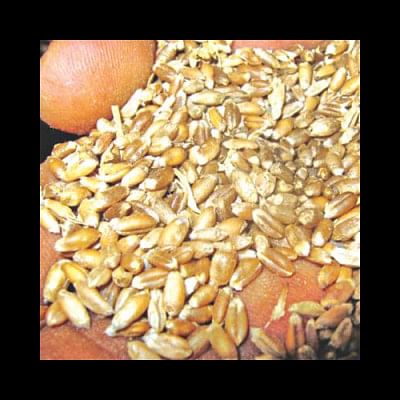SC stays HC order on taking back imported wheat

The Supreme Court today stayed the High Court verdict that directed the government to take back the wheat imported from Brazil from a department or organisation if they want to return the grain.
The Chamber Judge of the Appellate Division Justice Hasan Foez Siddique passed the order after hearing a petition filed by the government seeking stay on the HC judgement.
The chamber judge also sent the government petition to the Appellate Division's full bench for its hearing on July 26.
The stay order will remain effective till further order of the SC.
Yesterday, the HC, following a writ petition also directed the government not to compel anyone to receive the imported wheat if he is unwilling to do so.
According to media reports, the DGF bought 2 lakh tonnes of substandard Brazilian wheat early this year.
The HC in its observation said the newspaper reports on the wheat were based on their own findings.
Sources said the food office has already distributed over 1.5 lakh tonnes of the wheat for the government's safety net schemes -- including Food for Work, Test Relief -- and also as ration for the police.
Police complained of low quality grains, prompting the food ministry to collect samples from district warehouses for testing, said ministry officials.
After testing some samples of wheat in its own laboratories last month, the food ministry claimed that the grain was fit for human consumption and its quality "conforms to the contract specifications."
However, Bangladesh Council of Scientific and Industrial Research (BCSIR) on June 28 said all the samples supplied to it "contained higher amount of shrunken and broken kernels than the limit stated in the specification."
It also found presence of shrunken and damaged kernels between 9.93 percent and 21.11 percent, which is above the quality parameter set by the government for import of wheat through tenders. As per government rules, any supply of wheat should be rejected if it contains more than eight percent of shrunken and damaged kernels.
The damage percentage is also higher in all samples, except in those collected from Kurigram, Gaibandha and Sirajganj, said the BCSIR test report.
The food ministry's labs also detected presence of insects in wheat samples sent from Bogra, Joypurhat, Magura, Patuakhali, Sirajganj and Sherpur.
The wheat was supplied by two contractors – the Netherlands-based Glencore Grain and Singapore-based Olam International. The import cost the government around Tk 355 crore, and 90 percent of the payment has already been made, according to ministry officials.
The grains are smaller and thinner and give less amount of flour after grinding, they said.
Most of the sample tests carried out by the BCSIR and the food ministry found that the test weight of the grains did not conform to the contract specification but was above the rejection mark.

 For all latest news, follow The Daily Star's Google News channel.
For all latest news, follow The Daily Star's Google News channel. 


Comments